“Who is my neighbour?” Jesus was asked this question in a provocative conversation about living out the Great Commandment—to love God and love your neighbour (Luke 10:27). To answer, Jesus paints a vivid picture through a simple story.
The parable of the Good Samaritan is beloved because it brings the Great Commandment to life, essentially showing us the answer to one man’s question—Who is my neighbour?—is at the heart of a life of faith.
Inviting us to understand and express God’s heart in our broken and vulnerable world, Jesus introduces the characters of the Good Samaritan parable with a threefold purpose: to help us see the need for compassion in the world around us, feel compassion toward those around us and move with compassion.
Today, we invite you into another story that demonstrates God’s heart and reveals that there are so many tangible opportunities to move with compassion in our world today. Gabriella, a 20-year-old mother from Brazil, is a living, breathing answer to the question who is my neighbour?
Gabriella’s story
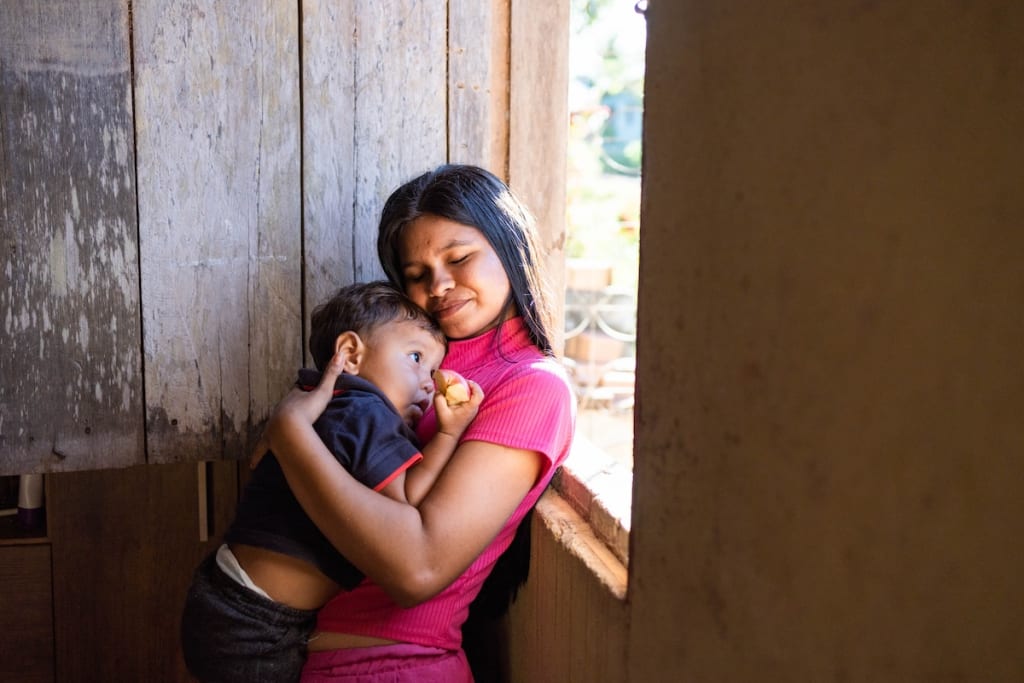
Gabriella and her son, Ithallo, are Survival program participants in Brazil.
“I will lose my baby.”
This was the only thought that came to Gabriella’s mind when, once again, she listened to the doctors refuse to accept her into the hospital to deliver her child. Thirty-nine weeks of pregnancy had already passed, but it was the fourth day in the same week that she had visited the hospital for medical care.
As she didn’t feel any severe pain, they insisted that she wasn’t ready to give birth, and after hours of waiting, they sent her back home. Everyone treated her with indifference, and Gabriella felt helpless.
“As the days went by, I just remembered the countless stories of children in our community who were stillborn because their mothers were forced to wait too long. The worst thoughts came to my mind, and I was afraid that this would also be our story,” said Gabriella.
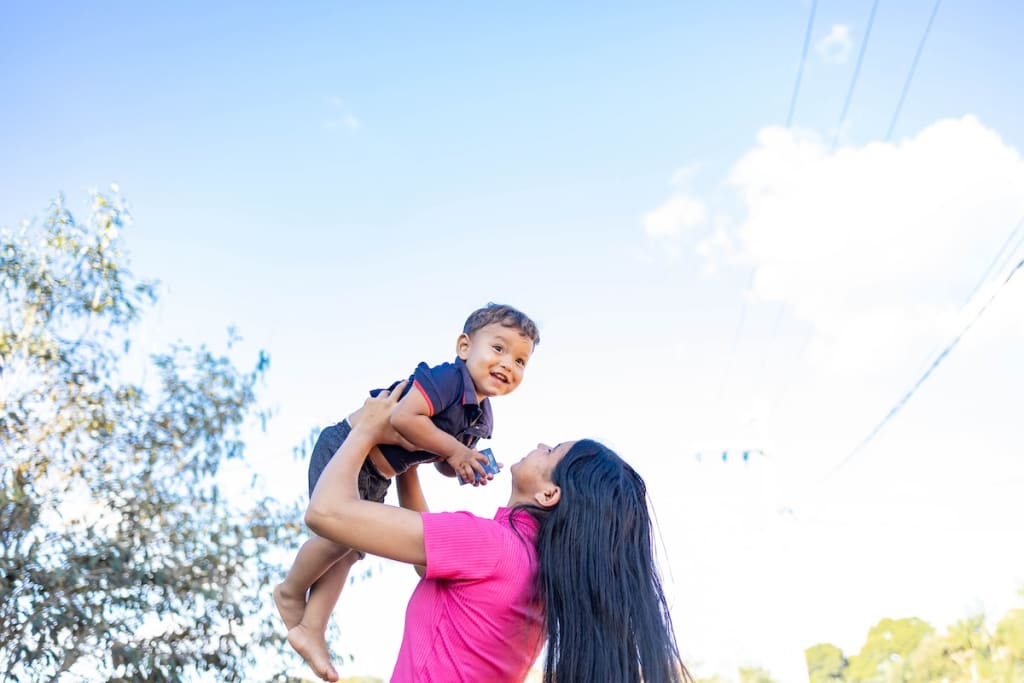
Dreams of motherhood
Gabriella was born and raised in the isolated town of Bom Jardim in northeast Brazil. The small city lacks access to essential services such as sanitation and proper medical care. The roads leading to the community are bumpy and difficult to access—a 20-minute journey can become a one-hour journey depending on the state of the streets, and ambulances sometimes take three times as long to provide care.
“Here in our community, we suffer a lot from the precariousness of everything, especially medical assistance. When we need quality care or more complex tests, we need to travel to neighbouring cities. It’s not rare to hear stories of medical error or negligence,” says Meire, a volunteer at the Bom Samaritano Compassion Centre.
Like many girls in her community, Gabriella married very early, at the age of 15. Her husband, Bruno, a few years older, worked in a car wash, and they lived in an annex of Gabriella’s mother’s house. Despite her young age, Gabriella was excited about becoming a mother, but the harsh reality of motherhood soon replaced her expectations.
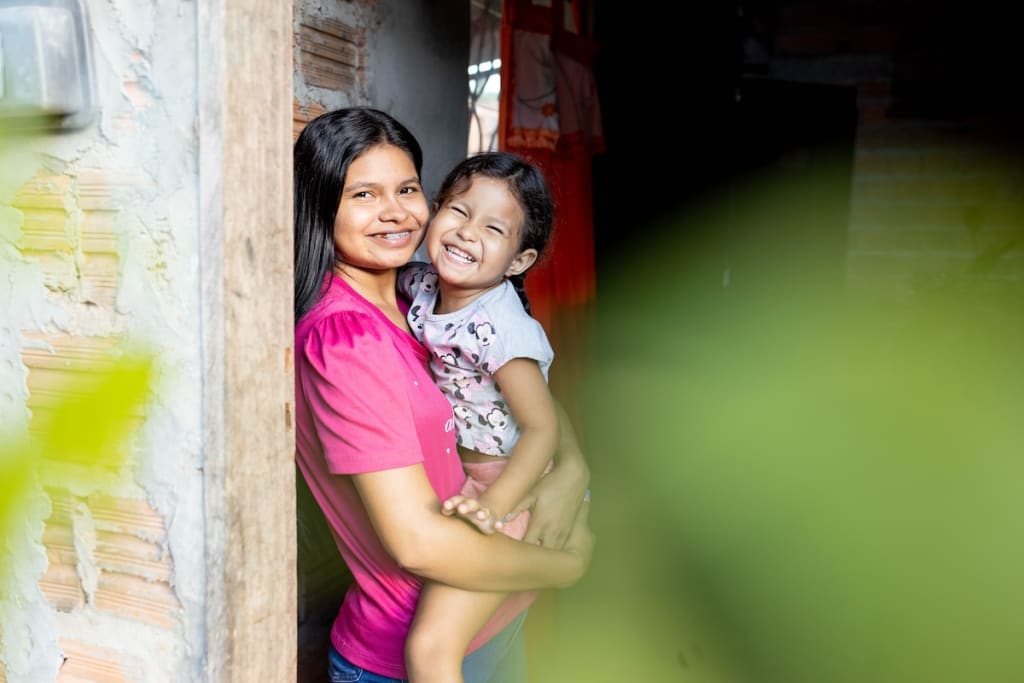
“My dream has always been to be a mother and have a family. I got married very early and dreamed of getting pregnant. I just had no idea how difficult and expensive it was to have a baby. Expenses never end, from diapers to clothes and food for the baby. My husband and I struggled a lot to manage everything, and our income came from government support and what my husband earned at the car wash, but it wasn’t much,” says Gabriella.
In addition to the challenges of early motherhood, Gabriella had to deal with comments from neighbours and acquaintances who gossiped about her age as a mother. To avoid the comments, Gabriella started to avoid leaving the house and isolated herself at home, leaving her very lonely.
A safe place for a mother to dream
Gabriella had just turned 18 when she found out she was pregnant again. Her daughter Dávilla was only a year and a half old, and the discovery of her second pregnancy surprised her and Bruno. If the worries of supporting their only child already troubled Gabriella, the news of the arrival of a second child would make everything even more challenging.
“When I found out about my second pregnancy, I was apprehensive about the expense of another child. It was a mixture of happiness and worry. It was amid these uncertainties that my neighbour told me about the Compassion centre. She said the centre was a place that welcomed women like me,” says Gabriella.
At first, Gabriella was embarrassed to go to the Compassion centre. Still, as soon as Brother Marcio, the centre director, discovered her story, he went to her house to enroll her in the Survival initiative—an intervention supporting pregnant mothers living in poverty.
At the Compassion centre, Gabriella found a welcoming place. In the Survival meetings, she learned more about baby care, discovered new skills in the Business Skills Training workshops and developed relationships with other mothers in the group.
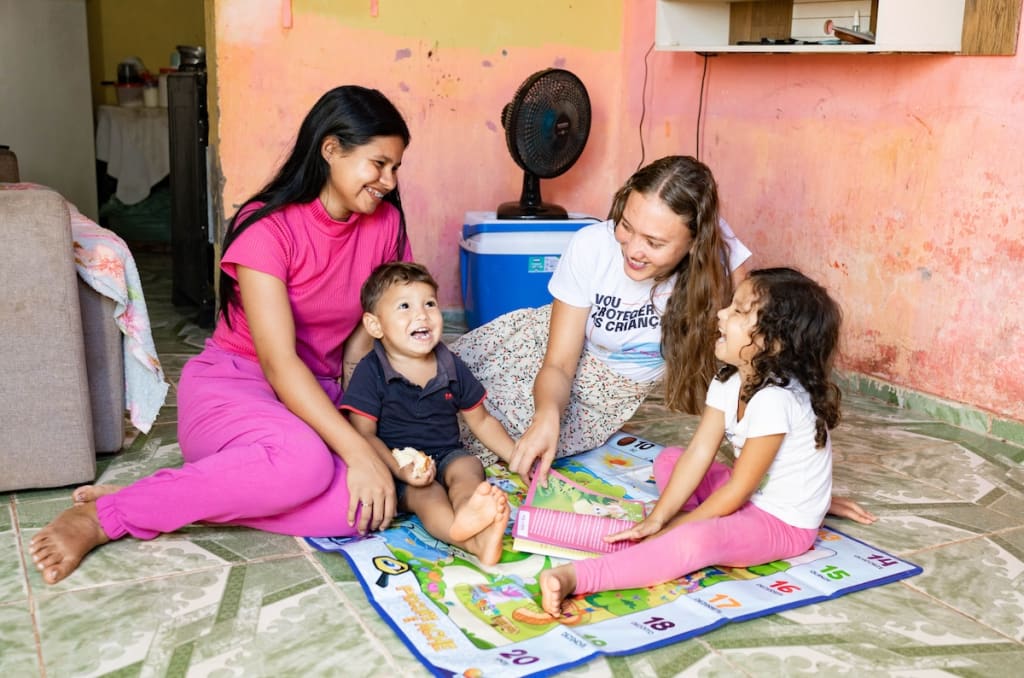
“In the Survival group, I felt loved by everyone. It was good to listen to the songs about God and advice for our lives. Even though I am already a mother, I learned many new things there, such as that we should regularly be changing children’s diapers. Before, I thought I only had to change them when the diaper was completely full,” says Gabriella.
The Compassion centre also supported Gabriella with food baskets and periodic medical exams. A few weeks before Gabriella gave birth, the centre presented her with a complete kit of newborn products. Throughout the program, volunteers work to ensure that mothers are healthy and ready to receive their babies.
“I don’t know how my pregnancy would have been if I didn’t have the centre by my side. Knowing they were by my side made me feel more relaxed, even amid worries about the future. I was excited to see my baby son in my arms,” says Gabriella.
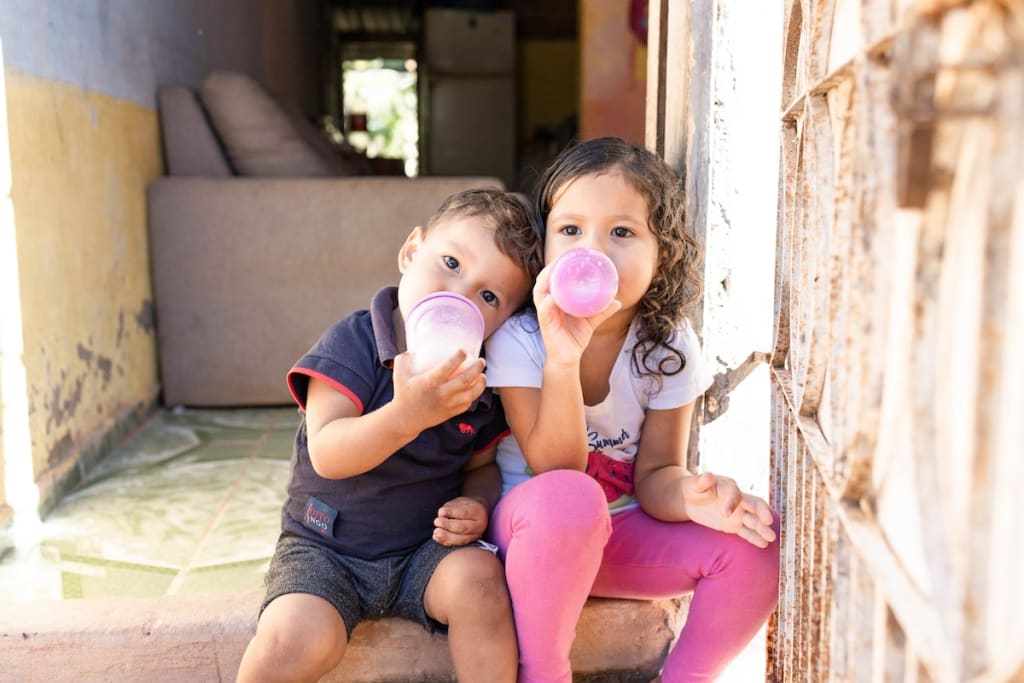
When the dream becomes a nightmare
Many women in Gabriella’s community do not experience much pain when they are about to give birth. In her first pregnancy, Gabriella didn’t feel any severe pain, but knowing her body, she knew it was time for her daughter to be born.
In her second pregnancy, already given the full 39 weeks and feeling that it was time for her son to be born, Gabriella went to the hospital.
Arriving there, however, she was not well received. In addition to blaming her for the pregnancy at such a young age, the nurses, without even examining her, said that she should go home because it was not yet time to give birth.
“The hospital staff did not treat me well. I felt unfortunate. After I waited in line for hours, they barely listened to me and sent me home. I tried to explain that I didn’t feel any pain with my first pregnancy either, but they just refused to see me and told me to come back when I felt pain,” says Gabriella.
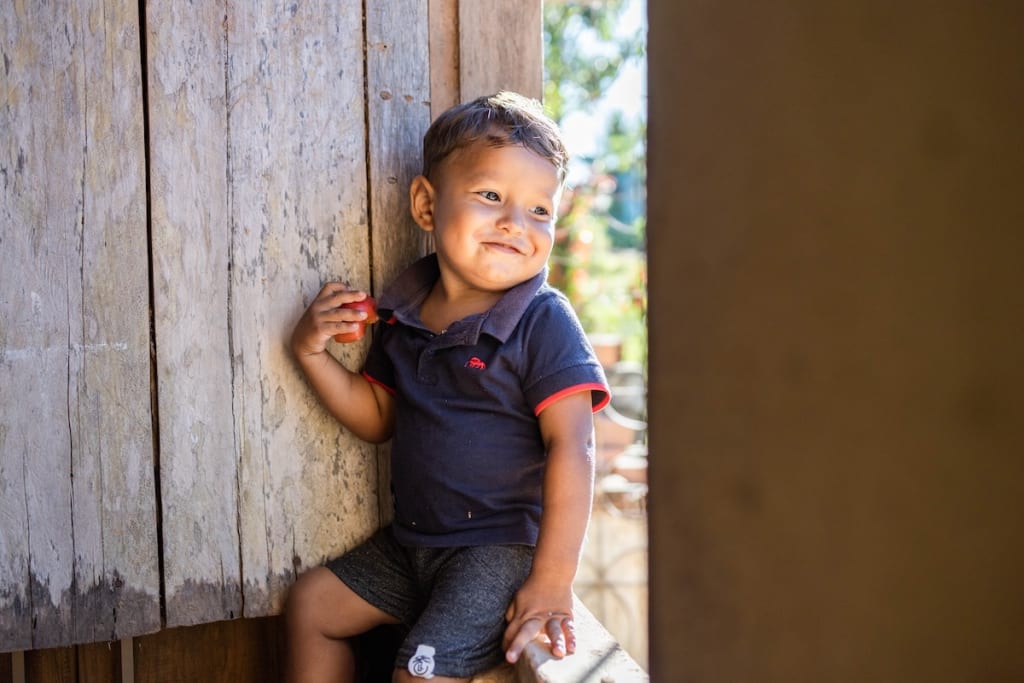
Gabriella and Bruno went back into the hospital three more times, and every time the doctors said it wasn’t time to give birth yet. Faced with the doctors’ resistance, Bruno had no other option but to try to calm his wife down and take her home.
“I felt heartbroken when I looked at my wife’s face and saw how apprehensive she was. I felt helpless because I had nothing to do. I didn’t have money to take her to a private hospital. All I could do was be strong for her, even if inside I was scared too,” says Bruno.
In the city of Bom Jardim, there are many cases of babies stillborn because their mothers had waited too long to give birth. Many are assisted too late and must be taken to neighbouring towns on extremely bumpy roads. Fear haunted Gabriella’s thoughts—the fear of losing her baby. With no hope, she turned to the Compassion centre for help.
“When Gabriella arrived at the centre, we noticed that she was very nervous, wanting to cry with fear. We immediately referred her to the doctor who was doing the medical evaluations that day, and he examined her carefully. Then he warned us that Gabriella was about to give birth and that we should take her to the hospital as soon as possible or she could lose the baby. I get emotional remembering that day,” says Meire, a volunteer at the centre.
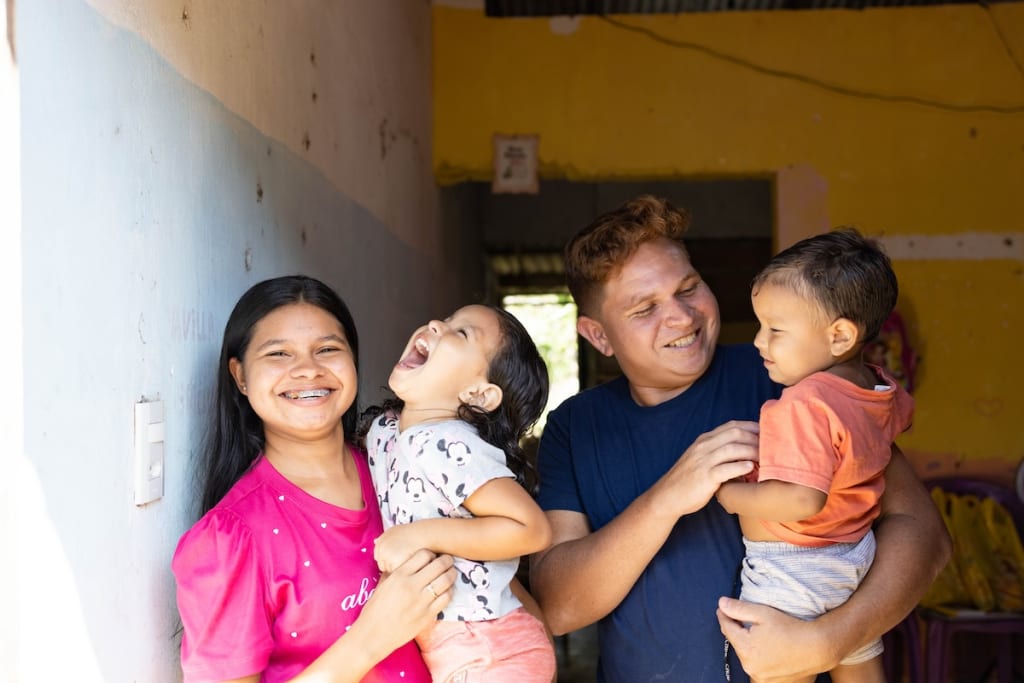
Aware of Gabriella’s attempts to be seen at the hospital, the centre’s volunteers called the local authorities and demanded that the doctors deliver Gabriella’s baby that day. The centre’s influence was effective, and Gabriella left the centre and went straight to the maternity ward.
A few hours later, she gave birth to a healthy baby boy, Ithallo.
“When Ithallo was born, he was all purple, and it took him a while to cry, so I was terrified that he wasn’t alive. But when he finally cried, I started to cry too,” says Gabriella. “Thanks to the Compassion centre that helped me, my son was born healthy.”
Dreams fuelled by the compassion of others
Two years have passed since one of the worst days of Gabriella’s life when she thought she would lose her son. Today, Ithallo is an adorable little boy who loves to smile and eat. As always, Meire and other Survival facilitators continue to assist the family with weekly visits to monitor and encourage the development of her children.
Dávilla, Gabriella’s eldest daughter, has also started attending the Compassion centre and participating in the sponsorship program.
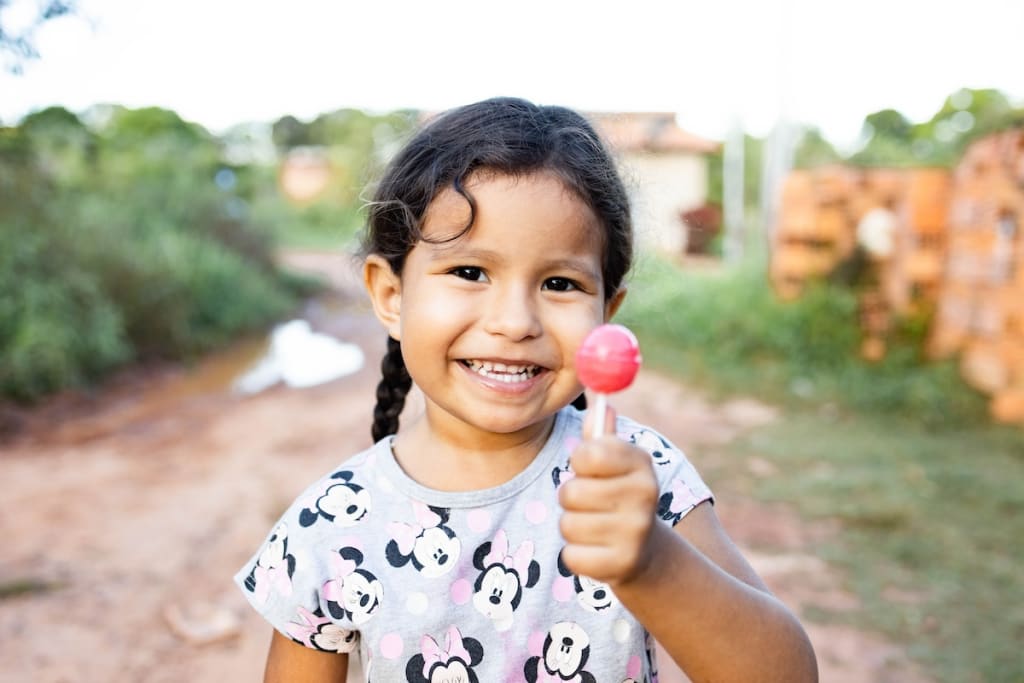
“I am deeply grateful to everyone at the centre who has supported me in everything these past years. They help us with food baskets, exams, medicines and even psychological care. I am extremely grateful to God for everything I learned from them and everything they do for me. Whenever I remember that if it weren’t for the Compassion centre, I might not have my son with me today, my heart swells even more with gratitude,” says Gabriella.
The impact of the Compassion centre has not only been important in the lives of Dávilla and Ithallo but also in Gabriella’s life. Currently 20 years old and encouraged by the workshops held at the centre and the words of the volunteers, Gabriella now dreams of finishing her studies and getting a job to help with her family’s income.
“Today, I’m thinking about studying. As soon as my children grow up a little more, I will return to school. At the centre, I learned how to do nails, and I’m already making some money occasionally. I love being a mother, it’s the greatest pleasure of my life. I want to study and work to give them a more comfortable life and provide things I never had in my childhood, which was tough. I love them very much and want them to grow up happy and in God’s way,” says Gabriella.
While playing with their children at home, Gabriella and Bruno remember the life they might not have lived if the centre hadn’t helped them. Gabriella feels grateful that she survived.
Now, more than surviving, they want their children to have a beautiful life full of joy. And they know they’re not alone.
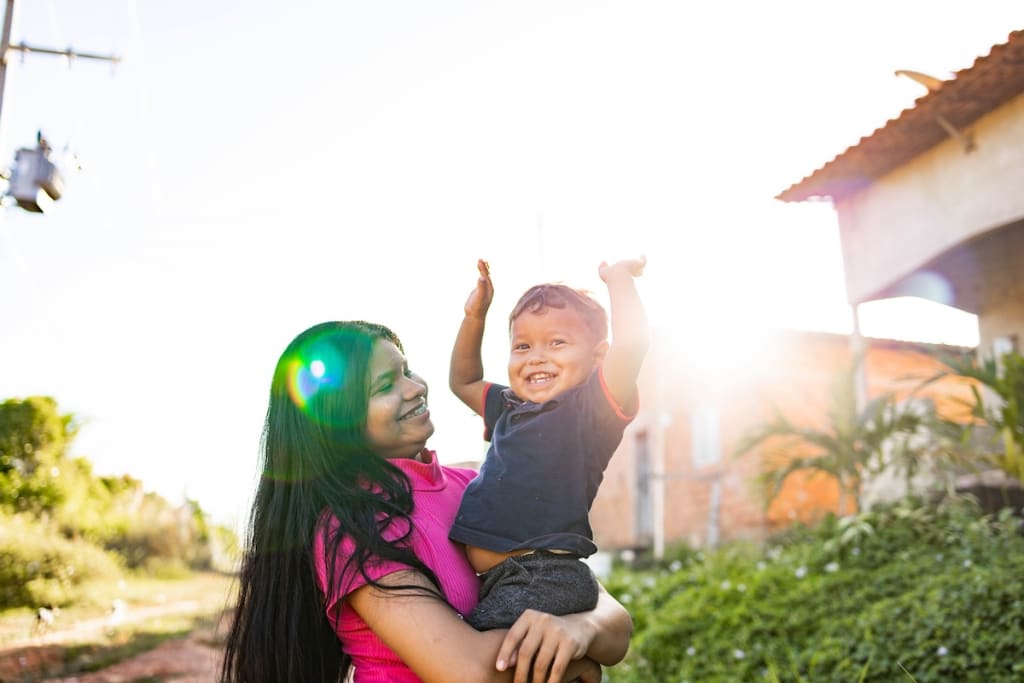
Who is your neighbour? Gabriella is.
How will you move with compassion for her?
Engage deeper with the story:
- Who do you think were the “good neighbours” in this story?
- What made them good neighbours?
- How did they see Gabriella’s need for compassion?
- What do you think they felt when they encountered her crisis?
- How did they move with compassion?
- Where do you see yourself in the story?
- How does this story inspire you to live out the Great Commandment (to love God and love your neighbour)?
Photos by Sara Navarro. Words by Sara Navarro with Rebekah Malbrecht.





